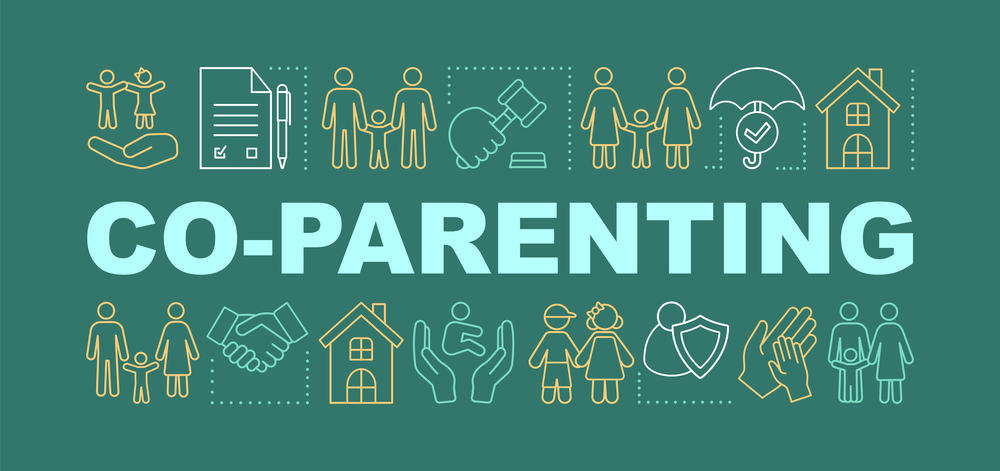Relocation after divorce is a complex issue, especially when children are involved. A move out of state can disrupt custody arrangements and impact the parent-child relationship, raising legal and emotional challenges. At Ziegler Law Group LLC, we understand the delicate balance between a parent’s right to relocate and the child’s best interests. This guide explains the laws surrounding parental relocation, the factors courts consider, and how to approach this situation effectively.

Legal Overview of Parental Relocation
Legal Overview of Parental Relocation
Relocation Laws by State
Relocation laws vary across the United States. In New Jersey, any move out of state by a custodial parent requires either the consent of the non-custodial parent or court approval. The goal is to ensure that the move aligns with the child’s best interests and maintains a fair balance between both parents’ rights.
Court Approval Requirements
A divorced parent must seek court approval to relocate with their child unless the other parent agrees to the move. This process involves filing a motion for relocation and demonstrating that the move benefits the child’s overall well-being.
Factors Courts Consider in Relocation Cases
When deciding whether to approve a parent’s relocation request, courts evaluate several factors, including:
Impact on the Child
- The court assesses how the move will affect the child’s stability and continuity, including education, social life, and access to extended family.
Parenting Time and Custody Arrangements
- A relocation must not severely hinder the non-relocating parent’s ability to maintain a meaningful relationship with the child.
Parent’s Intentions for Relocation
- Courts examine the reasons behind the move, such as better job opportunities, proximity to family support, or access to improved resources for the child.
Child’s Preferences
- If the child is old enough to express his/her preferences, the court may take his/her opinion into account, though it is not the sole determining factor.

Steps for Divorced Parents Considering a Move
Steps for Divorced Parents Considering a Move
If you are a divorced parent planning to move out of state with your child, here is what you need to do:
-
Notify the Other Parent
New Jersey law requires you to notify the non-relocating parent well in advance of your intended move. The notice must include details about the relocation, such as the new address, reasons for moving, and proposed custody adjustments.
-
File a Motion for Relocation
If the other parent does not consent to the move, you must file a formal motion with the court. Your attorney will help you present evidence showing that the relocation benefits your child and is made in good faith.
-
Prepare for a Custody Hearing
- Present Evidence: Show how the move improves your child’s life, such as access to better schools, medical care, or a stronger support network.
- Address Concerns: Demonstrate how you plan to maintain the child’s relationship with the non-relocating parent, such as regular visits or virtual communication.
When Relocation Is Denied
If the court denies your relocation request, you still have options:
- Modify Custody Arrangements: You can request changes to the custody agreement to accommodate your situation without moving.
- Appeal the Decision: Work with your attorney to appeal the ruling if you believe the court overlooked critical evidence or misapplied the law.

Relocation and Co-Parenting
Relocation and Co-Parenting
Successful co-parenting after relocation requires flexibility, communication, and a willingness to adapt. Here is how to make it work:
- Establish a Long-Distance Parenting Plan
- Develop a clear visitation schedule that includes holidays, vacations, and extended summer visits.
- Use Technology to Stay Connected
- Encourage virtual visitation through video calls, text messages, and emails to keep the non-relocating parent actively involved.
- Prioritize the Child’s Well-Being
- Make every effort to ensure the move does not disrupt the child’s routine, emotional health, or sense of security.
Frequently Asked Questions (FAQs)
-
Do I need the other parent’s consent to move?
Yes, unless you have sole custody and your custody agreement explicitly allows for relocation. Otherwise, you must obtain the other parent’s consent or court approval.
-
What happens if a parent moves without court approval?
Moving without approval can lead to legal consequences, including being held in contempt of court and potentially losing custody rights.
-
Can a parent with sole custody move without restrictions?
Not always. Even with sole custody, the court may require notice and approval if the move significantly affects the other parent’s visitation rights.
-
Does a child have a say in the relocation decision?
The court may consider the child’s preferences, especially if he or she is older and mature enough to express his/her views. However, the final decision is based on the child’s best interests.
-
What if the parents agree on the move?
If both parents agree, the relocation can proceed without court intervention. However, the agreement should be documented and submitted to the court for approval to ensure it is enforceable.
-
How can the non-relocating parent contest the move?
The non-relocating parent can file an objection with the court, presenting evidence that the move would negatively impact the child’s well-being or his/her relationship with the child.
Conclusion: Let Ziegler Law Group Help You Navigate Relocation Cases
Relocating after divorce involves a delicate balance between a parent’s right to move and the child’s best interests. Whether you are seeking to relocate or contest a move, Ziegler Law Group LLC is here to help.
Contact Ziegler Law Group at 973-533-1100 or Click Here to Schedule a Consultation for experienced legal support in your parental relocation case.






